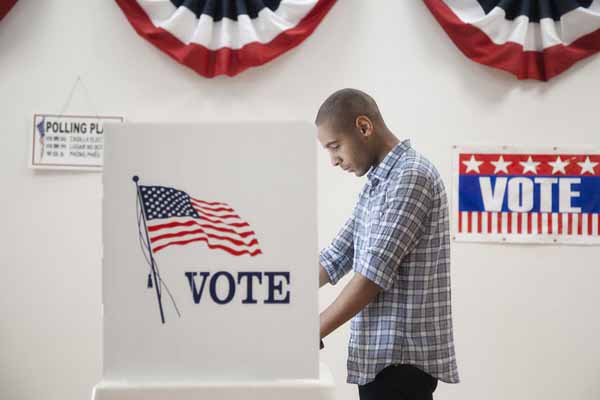
One of the most important things any of us can do for our health and the health of our communities is to vote. The Health and Democracy Index analyzed 12 public health indicators in relationship to state voting policies and demonstrated a clear relationship between inclusive voting policies and better health outcomes.
Despite this, physicians don't vote.
A 2021 study showed that physicians are significantly less likely to vote than individuals in comparable professions (lawyers, post-secondary teachers, chief executives, and the like). Compared with the public, physicians’ voting rates are 12% less than expected. This is particularly alarming when you consider that general voter turnout in Texas is already low. In 2018, only 42% of the voting-age population made it to the polls in Texas.
Beyond the low turnout, “undervoting”, the practice of showing up to the polls and voting in some but not all races, is a significant problem in Texas. Down the ballot races are decided by considerably fewer Texans than those at the top of the ballot.
This is not a reflection of the importance of these roles. Many down-the-ballot races have a significant impact on our health and well-being. The Texas Railroad Commissioner for example, does not actually deal with railroads. Instead, the person elected to this position, plays a role in a variety of areas directly linked to health and well-being such as controlling climate change, securing our energy grid, and ensuring safety of our drinking water. In the 2018 midterm election, 144,812 Texans left this spot on their ballot completely blank. Many of these races are incredibly close. And every single vote counts.
Why don’t people vote? The reasons are numerous and often debated. An NPR-commissioned study cited a host of reasons, but ultimately concluded that a sense of alienation and apathy was a major factor. In addition to thinking their votes do not matter, physicians specifically were 70% more likely than the public to report “too busy, conflicting work or school” as barriers to making it to the polls.
With so much on the line, we can’t be too busy to make it to the polls.
Early voting is open now in Texas and will remain open until Nov. 4. During early voting, Texans may vote in any polling place in their county of residence.
Visit vote411.org to make a voting plan, verify your registration, and review a sample ballot.
Election Day is Nov. 8.
Lauren Gambill, MD, MPA is a pediatric hospitalist and assistant professor of pediatrics at the University of Texas at Austin Dell Medical School. She is chair of TMA’s Committee on Child and Adolescent Health.